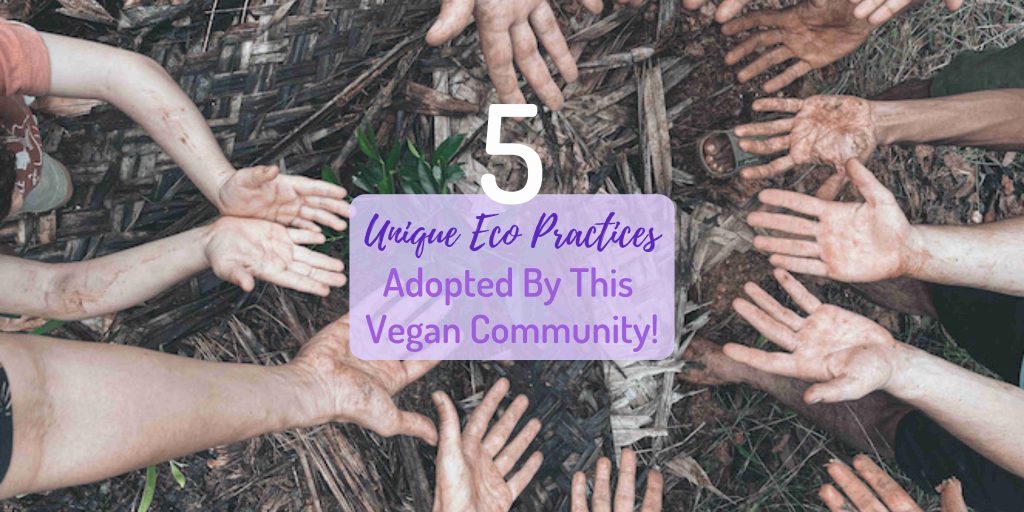
We recently had a chat with Aviram Rozin, the Founder of a vegan reforestation community called Sadhana Forest. We’re talking about a volunteer-run organisation planting indigenous, food-bearing trees with local communities in India, Haiti and Kenya. Their aim is to combat malnutrition and provide long-term plant-based food security while at the same time providing solutions for climate change and environmental degradation. How’s that for sustainability!
We asked Aviram to go in-depth to talk about the most important ways in which they create more environmental awareness in people. Here are 5 unique ways the community sets an example for the rest of the world!
1. Eco Film Club
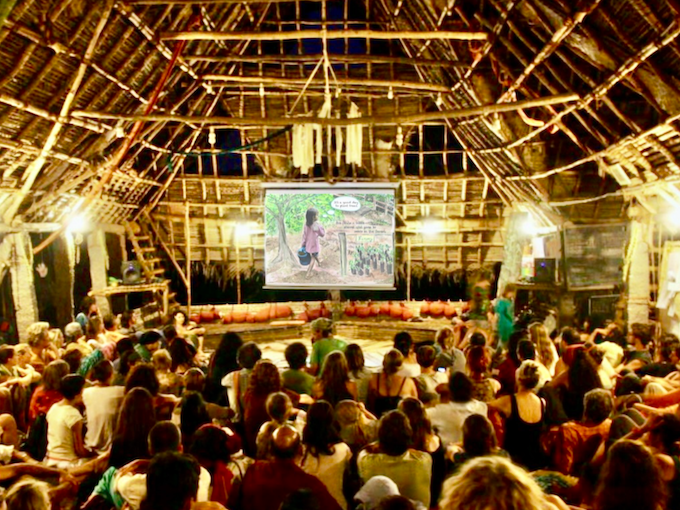
“Every Friday evening we host our Eco Film Club. Everybody is welcome to join us for an in-depth introduction and tour of Sadhana Forest and our environmental work. Afterwards we show a documentary about sustainability, followed by a free vegan dinner. We do not charge for the event and people do not even need to book in advance. We pick visitors up with a shuttle bus from the centre of Auroville. In this way, we try to make the evening as accessible as possible to all.”
2. Tea Hut
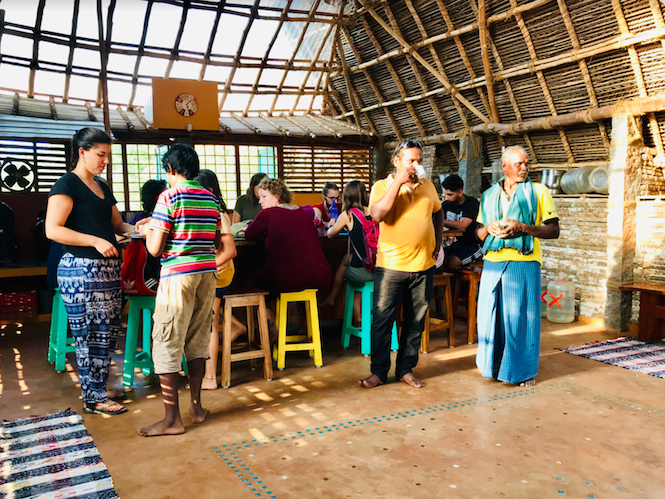
“We serve free vegan chai and wholefood laddu’s (sweet dessert balls made with millet flour, peanut and jaggery) every weekday in the morning and afternoon to our neighbors, guests and visitors. In this way we bring people together and we make them aware of more compassionate, healthy and environmentally friendly alternatives for their milk chai and sweets.”
3. Children’s Land
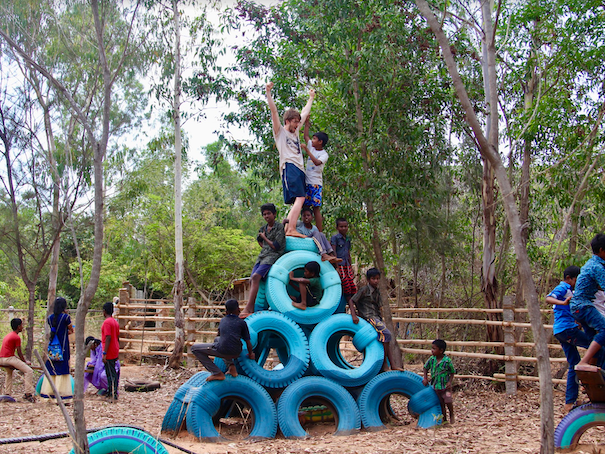
“Every week we bring several groups of local children to Sadhana Forest. During a few hours they have the time to be in nature, play in a playground of upcycled tires, swim in our mudpool, prepare and enjoy vegan food or engage in other creative activities.This way we introduce them to our work and way of life in a playful way. The children that come to Children’s Land as a child, often come and volunteer with us later.”
4. Gaushala
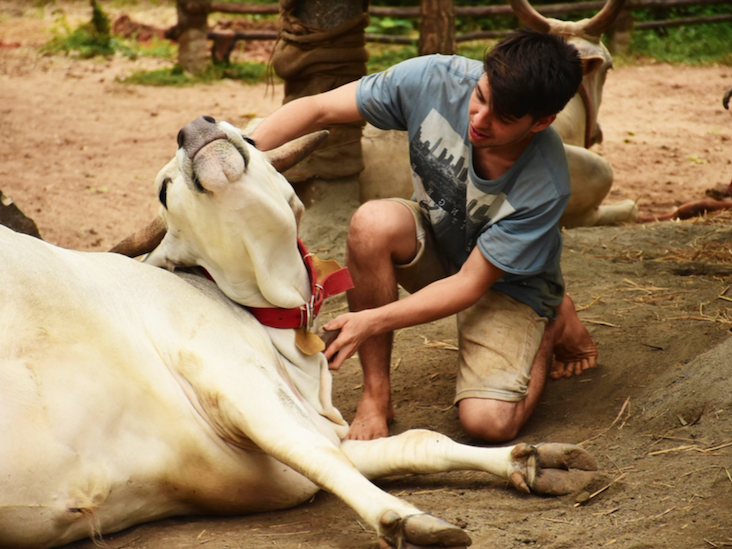
“We host a dozen cows in our vegan cow sanctuary (aka Gaushala). The cows that we take care of are the best ambassadors for the environment and a plant-based lifestyle we can imagine. When our volunteers and visitors interact with them, and learn how gentle and social these animals are, they often change how they see farmed animals and are open to receiving information about the environmental benefits of a vegan diet.”
5. Welcoming Guests & Volunteers
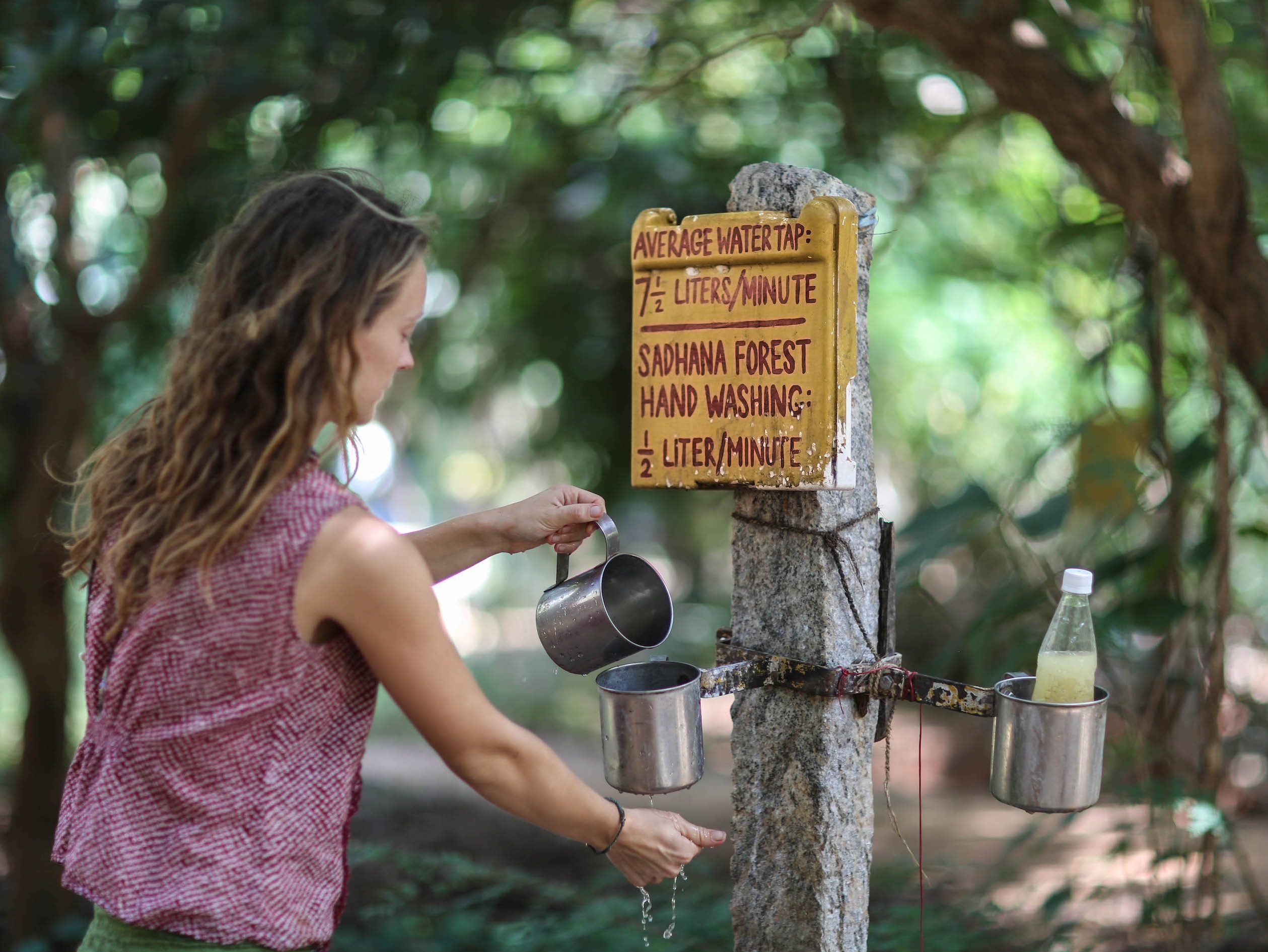
“Guests are welcome to walk into Sadhana Forest any time. We give them a free tour, explain our work, and offer them a free vegan meal if they join during mealtime. We welcome thousands of guests this way every year, and serve thousands of free wholefood plant-based meals. All our food is non-processed and we buy as much as we can locally, packaging free and organic.
Sadhana Forest also welcomes volunteers from across the globe year round. Volunteers come and stay on our vegan campus in the middle of the forest that we have planted and immerse themselves in a natural, eco-friendly environment. They plant trees and learn how to take care of them. They live simply, in tune with nature, and get to know many different practices for zero waste and sustainable living. Our campus is off-grid: it is powered by our solar energy system, and we pump the water from our own well using this solar energy. Our huts are made from local and natural materials and we do not use any chemicals in our campus. We have dry compost toilets which produce the compost for our tree planting.”
Here’s what one of Sadhana Forest’s long term volunteers has to say about how life in this forest has shaped him…
“Before I came to Sadhana Forest nearly 5 years ago, I was a huge meat eater and went hunting regularly. Sadhana Forest completely changed my relationship with the natural world and all life in it. I quickly understood the aspect of veganism of not eating or taking from animals, but over time here, I really started to learn about the integral aspect of veganism. Compassion to animals is also protecting and creating the forests and habitats they live in, conserving the water that all life depends on and living in a sustainable way in all aspects of life. Living in huts made from natural materials, using solar energy, living in a simple and Minimalist way, eating local organic food, reducing waste as much as possible, this is all moving towards extending my compassion out to as many animals as possible.” – Luke
TeamCow would like to thank everyone in Sadhana Forest for all that they do to make the world a better place! Follow Sadhana Forest on Instagram to stay updated on their journey.
If you missed reading the rest of the interview with Aviram Rozin, here it is!
If you liked reading this story, we think you’ll enjoy the following articles too:
– Spotlight | Shivya Nath, Vegan Traveller and Author
– Top 3 Reasons To Go Vegan For The Planet
– Can Going Vegan Change Your Life?
– Five Common Concerns About Veganism: Answered
– 10 Steps Towards An Eco-Friendly Lifestyle
To find vegan food near you, at any time and place, get the FREE HappyCow app. Follow us on Instagram, Facebook, Pinterest, and Twitter for vegan tips, guides, and recipes!





